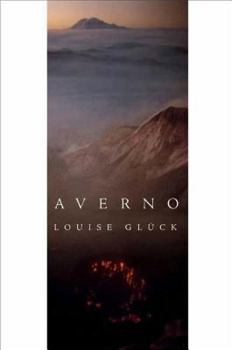Averno: Poems
Select Format
Select Condition 
Book Overview
WINNER OF THE NOBEL PRIZE IN LITERATURE
Format:Paperback
Language:English
ISBN:0374530742
ISBN13:9780374530747
Release Date:February 2007
Publisher:Farrar, Strauss & Giroux-3pl
Length:96 Pages
Weight:0.30 lbs.
Dimensions:0.4" x 5.4" x 8.0"
Customer Reviews
4 ratings
Evocative and Earthly
Published by Thriftbooks.com User , 17 years ago
Louise Gluck remains an elegant poet, able to evoke the mysteries of being crafted in the forms of gods while surviving our humanity. She is quick to capture our attention and lingers as we put her book aside in response to daily obligations.
Fast, well packaged delivery
Published by Thriftbooks.com User , 18 years ago
The book "Averno" appeared almost immediately after I ordered it. The service was efficient and the packaging was secure.
When I Think of Louise Gluck's Averno...
Published by Thriftbooks.com User , 18 years ago
I can barely breathe. It's not because I'm a female in some kind of a swoon. It's because she never fails to tell the truth no matter how hard it might be to swallow. Also, most of the Master poets (among which Ms. Gluck surely is included) never, ever fail to tackle those dark, disturbing, complex places most of us refuse to even consider let alone pen as a work of art. As a result, this collection shines, literally, in the dark. I don't care if she uses an ancient mythic-metaphor that has been employed before. I don't care if some find it 'depressing.' But I very much care when a Masterpiece like this doesn't get the 5-star rating I believe it deserves. Ms. Gluck is among the most courageous poets worldwide. I'd say that puts her at the top of my list...exactly where she has always been.
Sorry Seems To Be The Hardest Word
Published by Thriftbooks.com User , 18 years ago
As Louise Gluck reminds us, Averno is a small lake, famous for being the entrance to the underworld. Her notoriety as a poet who will spare nothing to achieve perfection takes another corner here, as she jumps from angle to angle all the while drinking in the sad, almost preternaturally pertinent life ( and afterlife ) of the demi-goddess Persephone who, as the daughter of Demeter, wound up sold down the river to pleasure Hades in return for allowing the eternal harvest to continue here on Earth. Averno is not only a lake, but a crater, and thus the cold darkness of the moon, beyond which Pink Floyd could only sniff the nitrate, penetrates into Gluck's patented rhythms. She is cold here because her subject is cold. We all know the myth of Persephone, and perhaps it is an overworked subject, but Gluck manages to give it a bit of a refreshener course by showing us that the US incursion into Iraq is yet another byproduct of the ever poignant power brokerage between the forces of Demeter and the forces of hellfire. As she grows older, she realizes, she just doesn't care any more about the things that obsessed her as a young, lyric poet. And she must get tired of Anne Carson continually eclipsing her reputation with classical coverage all her own, with even more quirks than Gluck. But if so, she only shows an icy hauteur, for the young and healthy (and stupid), not only the students of Yale, where she sometimes teaches, but all of us who lack her enviable distance from feeling. The sheer perfection of her syllabics is daunting, but many have endured and came to a place where her yearning to be loved meets with a corresponding affection. "I want to say--I'm just not interested anymore./ /I wake up thinking/ you have to prepare./ Soon the spirits will give up--all the chairs in the world won't help you." This is a brief medley of lines from "Averno" itself, a poem in which a bit of Gluck's own personality squeaks through the rigidly constucted dramatic monologues she has created for Persephone to speak. In "Archaic Fragment" (page 52 of my edition), syntax itself breaks down, as does the poet's unique ability to represent the obvious: "AIAIAIAI cried/ the naked mirror." When she started so many years ago, the poet AI was a rival. Now she is almost alone on Parnassus, except for pesky Anne Carson. "I want my heart back," she cries. "I want to feel everything again--" (Blue Rotunda," one of several rotund pieces here.) She is like Robert Browning, creating a social order out of a random, often violent, vision of anarchy. She wants to "see what you're saying goodbye to." Not for nothing is "NO" the last syllable of, --AVERNO.





